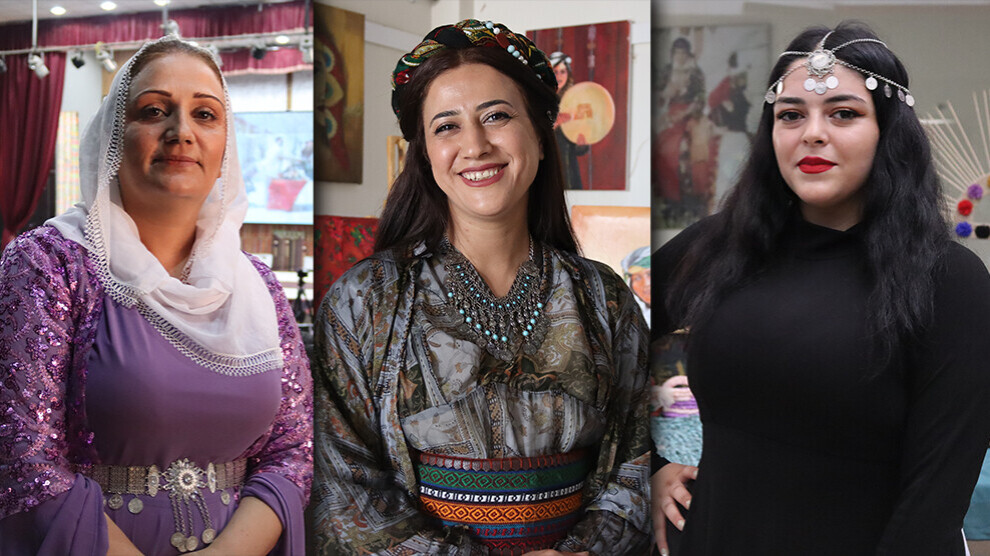‘We will improve the revolution through culture and art’
“Just as women resisted many forces during the Rojava Revolution, women, who found their identity and truth in art, also became a part of the same resistance,” said women artists participating in the festival held in Kobanê.

BERÇEM CÛDÎ
Kobanê -The Hîlala Zêrîn Cultural Movement held the 2nd Martyr Berçem Festival in Kobanê between September 6-9 with the participation of women from different nationalities, ethnic groups and religions in northeastern Syria. The program of the 4-day festival included exhibitions, concerts, theatre performances, poetry activities and documentary screenings. More than 300 Kurdish, Arab, Turkmen, Circassian and Armenian women graced the festival with their art.
‘Women have started a new revolution in art and culture’
Sumeya Mihemed, known for her song “Jin, Jiyan, Azadi” was one of the women who participated in the festival. “Many women have participated in the festival this year. The first edition of the festival was held two years ago. As women, we faced many problems in organizing such a festival because women are ignored in culture, art and literature due to traditions in society. In the first years of the revolution (Revolution in Rojava), women took steps in art and culture by composing songs and developing art works. However, they faced many challenges. At the festival, we have seen how women have developed themselves in art and culture. I can say that women have started a new revolution in art and culture.”
‘We will keep working for the freedom of leader Apo’
We will play an active role in breaking the isolation in the prison island of Imrali, Sumeya Mihemed emphasized, adding, “The festival program made it clear that women are part of the art field. Kurdish, Arab, Circassian, Turkmen and Armenian women displayed their culture and art in their performances thanks to the revolution (in Rojava). The ideology of leader Apo (Abdullah Öcalan) paves the way for women to fight for their reality. Therefore, the festival is dedicated to leader Apo. As women artists, we will keep working for the freedom of leader Apo as part of the ‘Freedom for Abdullah Öcalan and a political solution to the Kurdish question’ campaign.”
‘As Armenian women, we are happy to participate in the festival’
An Armenian folk dance group called the Artsax Halay Group also performed at the festival. “As Armenian women, we have participated in a festival with our clothes and culture for the first time,” said Lîlyana Komeciyan, a member of the group. “For four days, people have learned about other cultures. As Armenian women, we are happy to participate in the festival with our culture and art.”
‘Holding the festival in Kobanê is meaningful’
Holding the festival in Kobanê is meaningful, said Bêrîvan Botan, a female artist participating in the festival. “For four days, the festival has highlighted women's creativity in culture, art, painting and women's handicrafts. The Rojava Revolution was an opportunity for us, women, to stand up against the regimes and reactionary thoughts. Just as women resisted many forces during the Rojava Revolution, women, who found their identity and truth in art, also became a part of the same resistance. As women artists, we will improve the revolution through culture and art.”
‘The Southern Kurdistan government cannot undermine our determination’
Emel Mathlouthi, Tunisian singer-songwriter and musician, and Şadî Xolamî, a musical group from Rojhilat Kurdistan (Eastern Kurdistan) would also participate in the festival; however, the Kurdistan Democratic Party (KDP) prevented them from entering North and East Syria. “The Southern Kurdistan prevented them from participating in the festival,” said Bêrîvan Botan. “The policies of the Southern Kurdistan government aim to destroy the culture and existence of the Kurdish people. The Southern Kurdistan government cannot undermine our determination.”
